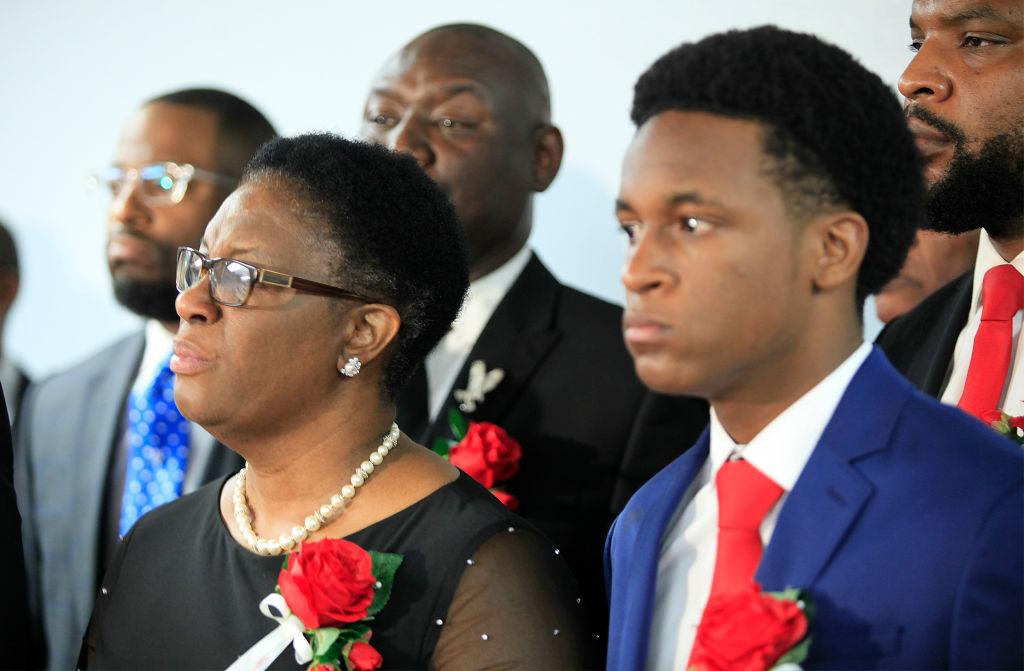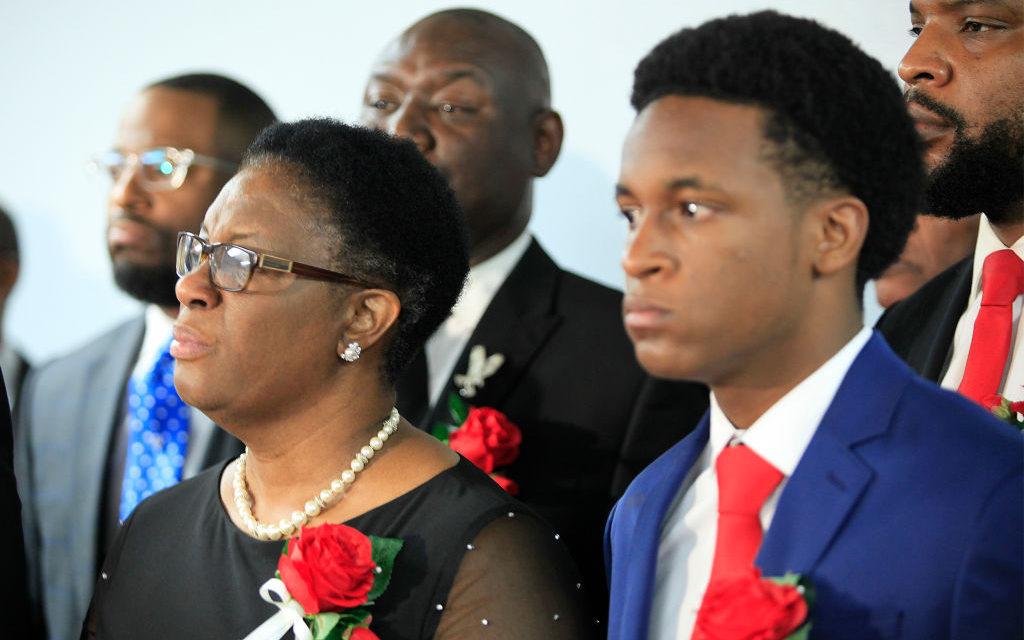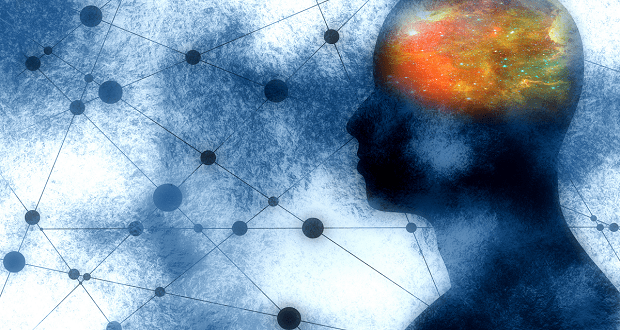
Last Tuesday, former Dallas police officer Amber Guyger was convicted and sentenced to 10 years in prison for the murder of 26 year-old Botham Jean. Guyger fatally shot Jean in September 2018 when she entered his apartment instead of her own in the same complex and misidentified him – a Black man, sitting in his own apartment eating ice-cream – as a potentially violent intruder.
Guyger’s lawyers argued that the ex-police officer’s actions were a “tragic mistake,” maintaining that she had been exhausted after a long day at work and was unaware that she was entering the wrong apartment – despite the fact that Jean’s apartment was on a completely different floor than her own. Guyger, a White woman, maintained that she shot and killed Jean because she feared for her life, reinforcing stereotypes and cultural tropes of the “Big Scary Black Man” and the “Virtuous White Woman.”
When I first heard about Botham’s case a year ago, I was not optimistic that his accused murderer would be brought to justice. After all, what have Trayvon Martin, Eric Garner, Michael Brown, Tamir Rice, and hundreds of other Black men and boys across the country taught us? That life is precious, and something to be valued – unless you happen to be a shade of Black or Brown. When I heard she had been convicted, I was surprised, and it made me consider how the recent discourse on racial injustice, officer-involved shootings, and Black Lives Matter may have affected the jury’s decision. I also considered how Guyger’s gender might have factored into her conviction. Did she receive 10 years (less than half of Botham’s entire lifetime) because she was perceived as less of a “threat” as a White woman? Was she convicted because she lacked the protections that the law affords White men in law enforcement and the “good old boys’” network?
After the verdict was delivered, the court was in for several surprises: a statement of forgiveness, accompanied by a heartfelt embrace, from Brandt Jean, Botham Jean’s brother, and another embrace initiated by Tammy Kemp, the judge presiding over the trial.
Brandt’s actions were met by a mixture of curiosity, praise, and confusion from across the community. Personally, I was conflicted. As a Christian, I understood Brandt’s motivations to forgive and also deeply admired his ability to do so in a situation I can only hope never to face in my lifetime. As a Black woman with a father and brother who could have been Botham, I am also deeply saddened by the fact that there are often no hugs for our Black boys and men who are lost to violence. By the time we realize our “tragic mistake,” it is often too late.
As a Black woman with a father and brother, I am also deeply saddened by the fact that there are often no hugs for our Black boys and men who are lost to violence. By the time we realize our “tragic mistake,” it is often too late. Click To TweetThere was a wealth of responses on social media and within the community praising Brandt for being brave, compassionate, and an ambassador of his faith. Yet Kemp, a Black woman, was criticized for being unprofessional, insensitive, and even unduly influenced by her Christian faith. I couldn’t help but think what the courtroom would look like if the situation was reversed. The marginalized are often expected to forgive and extend grace. However, the same forgiveness and “benefit of the doubt” are not often extended in the reverse. It is unlikely that a Black man facing trial for the murder of an unarmed White woman would be met with hugs from the victim’s family and judge in the courtroom – or a 10-year sentence with parole eligibility.
The marginalized are often expected to forgive and extend grace. However, the same forgiveness and “benefit of the doubt” are not often extended in the reverse. Click To TweetForgiveness is beautiful, and I can’t imagine the pain that Jean’s family has gone through over the course of the last year. I think that we can all agree that the world needs more forgiveness, empathy, and understanding. But where are the hugs for our Black boys? Where are the hugs for the families of those who have been killed in officer-involved shootings? Where is the compassion for others that do not look like or have the privileges of the dominant group? I won’t fault Brandt for hugging his brother’s killer. He expressed a grace and compassion in a situation I hope that I will never have to understand or face. But I do fault the systems, institutions, and organizations in place that continue to harm our bodies, families, and psyches, often without a second thought.
Where are the hugs for our Black boys? Where are the hugs for the families of those who have been killed in officer-involved shootings? Where is the compassion for others that do not look like or have the privileges of the dominant… Click To Tweet


















